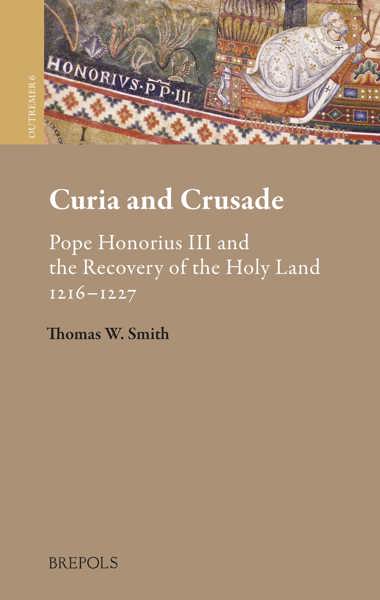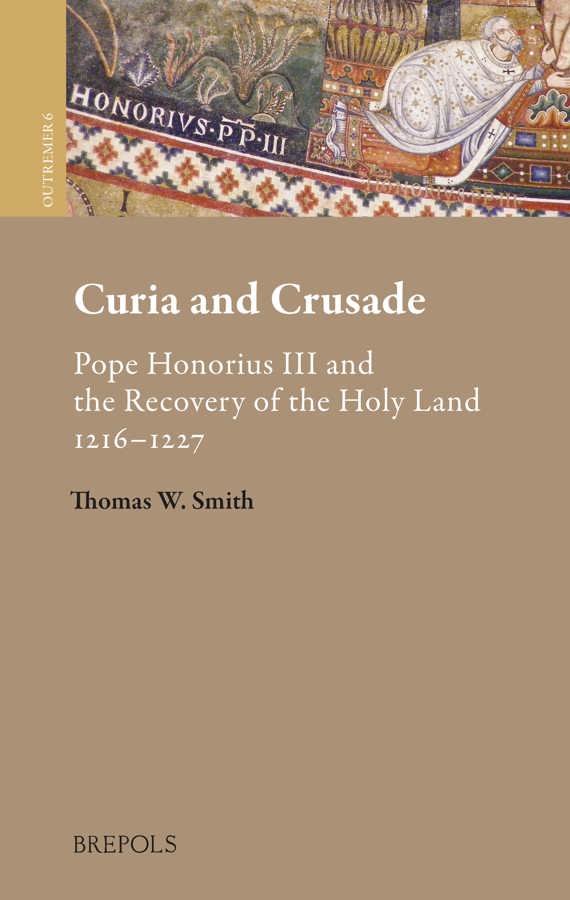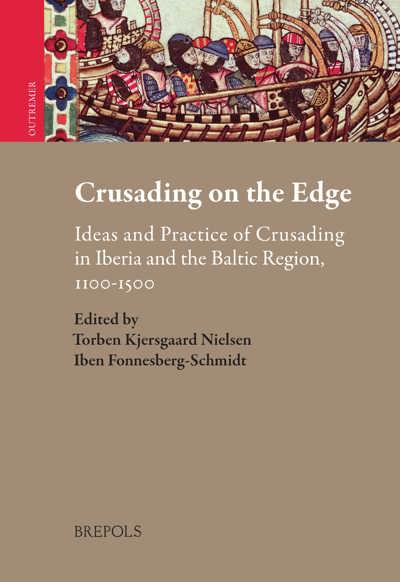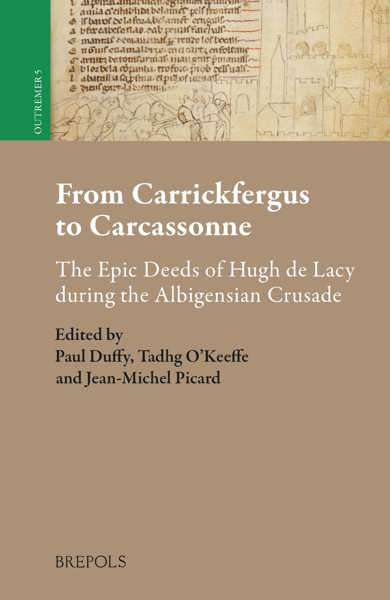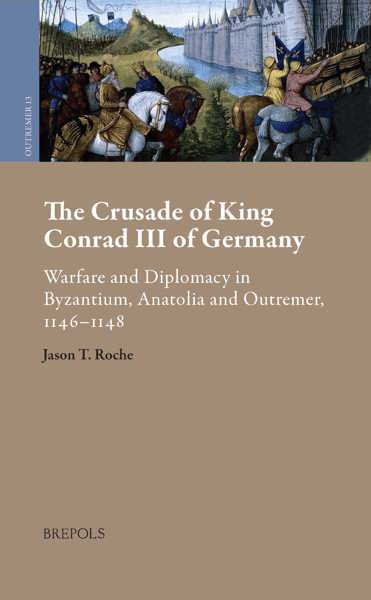
- Pages: xii + 393 p.
- Size:156 x 234 mm
- Illustrations:27 b/w
- Language(s):English, Latin
- Publication Year:2017
- € 100,00 EXCL. VAT RETAIL PRICE
- ISBN: 978-2-503-55297-2
- Hardback
- Available
- € 100,00 EXCL. VAT RETAIL PRICE
- ISBN: 978-2-503-56097-7
- E-book
- Available
Highly Commended award in the 2018 British Records Association Janette Harley Prize competition.
“The book’s investigation is very detailed and highly focused, and its central argument is well made (…) a work that is (…) very thorough, insightful, and a pleasure to read.” (Stephen Donnachie, in Reviews in History, 18 July 2018)
“The strength of Thomas Smith's book lies in his theoretical contextualization of Honorius's papacy within both papal and crusade studies. Using a trifold chronological, thematic, and comparative approach, Smith queries to what extent popes took the initiative in formulating and implementing a defined crusading policy.” (Jessalynn Bird, in Sehepunkte, 18/5, 2018)
“In conclusione, il libro presentato in questa sede (così come quello di Claverie) costituisce un ottimo punto di partenza per ripercorrere il periodo immediatamente successivo al Quarto Concilio Lateranense e le evoluzioni cui andò incontrò il movimento crociato, alla ricerca di quella sistematizzazione giuridico-ecclesiastica tanto cercata dai vertici della cristianità bassomedievale.” (Luigi Russo, in Quellen und Forschungen aus italienischen Archiven und Bibliotheken, 99, 2019, p. 623)
“brille par son originalité”, “grande finesse d’analyse”, “grande méticulosité” (Pierre-Vincent Claverie, in Le Moyen Age, 127, 2019)
“Die Studie verbindet die Analyse teils unedierter Quellen mit einer profunden Diskussion internationaler – auch deutscher – Forschung, was deutlich über das hinausgeht, was Dissertationen aus dem englischen Sprachraum sonst bieten.” (Georg Strack, in Deutsches Archiv, 76, 2020, p. 370–1)
Thomas W. Smith is a Leverhulme Trust Early Career Fellow at the University of Leeds. Previously, he was Assistant Professor (Lecturer) in Medieval History at Trinity College, Dublin.
The pontificate of Honorius III (1216–27) ranks among the most important papal reigns of the thirteenth century: the pope organised two large-scale crusades to recover the Holy Land, the second of which recovered Jerusalem for the first since 1187; he presided over a ‘golden summer’ of papal-imperial relations with the medieval stupor mundi, Frederick II, emperor of the Romans and king of Sicily; he developed an original theological conception of his office; and he laid the foundations for a centralised papal financial machine. Yet, despite his significant impact on thirteenth-century Christendom, Honorius has often languished in the shadow of his famous predecessor, Innocent III – a balance that the present book redresses.
Grounded in extensive original research into the manuscripts of Honorius’s letter registers, this study develops a revisionist interpretation of how the curia marshalled the crusading movement to recover the Holy Land. Questioning the utility of the historiographical construct of ‘papal policy’, this book provides new insights into crusade diplomacy, papal theology, the roles of legates, and the effectiveness of crusade taxation. It also includes a comprehensive and accessible introduction to the papal chancery and its documents, which will be of particular use to students and those approaching the medieval papacy for the first time.
Introduction
The Legacy of Hattin: The Crusading Movement, 1187–1216
Responsive Papal Government and the Crusades
The State of Research on Honorius III
Structure of the Book
Part I: The Curial Context
1. Honorius III: Origins and Career
2. The Papal Chancery and its Documents
Types of Papal Document
The Diplomatic Structure of Papal Letters
The Curia
The Composition of Petitions
The Use of Proctors
The ‘Rules of the Game’
Diplomatic Affairs
Chancery Processes
The Registers of Honorius III
Part II: Papal Diplomacy and the Crusade, 1216–27
3. Andrew II of Hungary and the Fifth Crusade, 1216–18
Hungary and the Crusade
The Arrival of the Imperial Delegation
The Expedition of Andrew II
4. Emperor Frederick II and the Fifth Crusade, 1218–21
Leadership of the Crusade
Frederick II’s Commitment and Postponements
John of Brienne and the Throne of Armenia
The Imperial Coronation
5. The Imperial Crusade, 1221–27
The Veroli Colloquium
The Ferentino Colloquium
The San Germano Colloquium
Frederick II and the Throne of Jerusalem
The Rebellion of the Lombard League
The Death of Honorius
Part III: Instruments of Authority: Expression, Representatives and Results
6. Arengae
Authorship
Themes
Originality
7. Legates
Appointment and Powers
Peacemaking and the Crusade
Pelagius on the Fifth Crusade
8. Taxation
The Institution of the Twentieth in 1215
Local Collection and Transfer
Centralised Collection and Transfer
Diversion
Exemption
Fraud, Theft and Non-Payment
The Fifth Crusade and its Aftermath
Conclusion
Bibliography
Index
